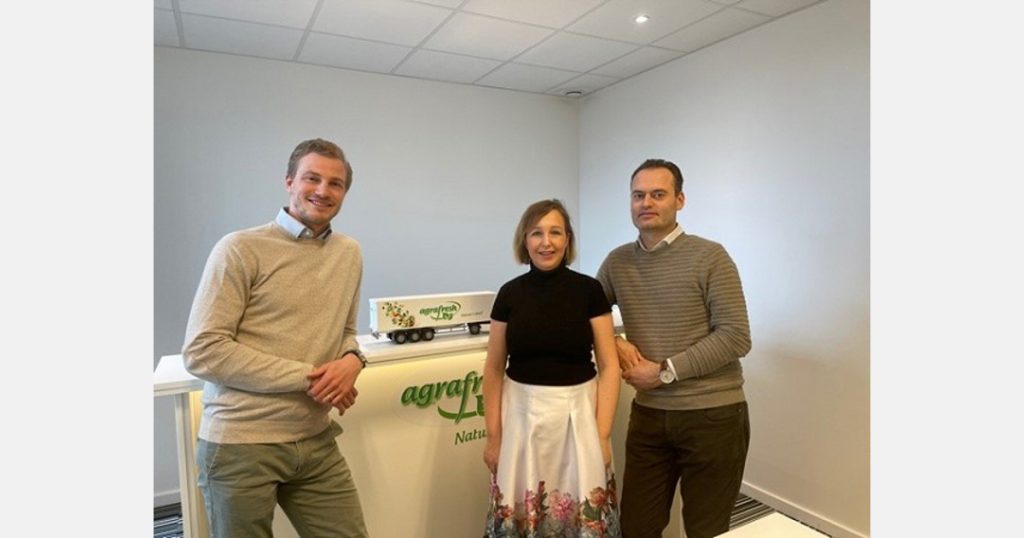In recent years, the popularity of convenience products has soared. These are things like pre-sliced vegetables, salads, and ready-to-eat meals. The Belgian company Agrafresh is one of this market’s players. They supply convenience products to customers in Belgium, France, and the United Kingdom.
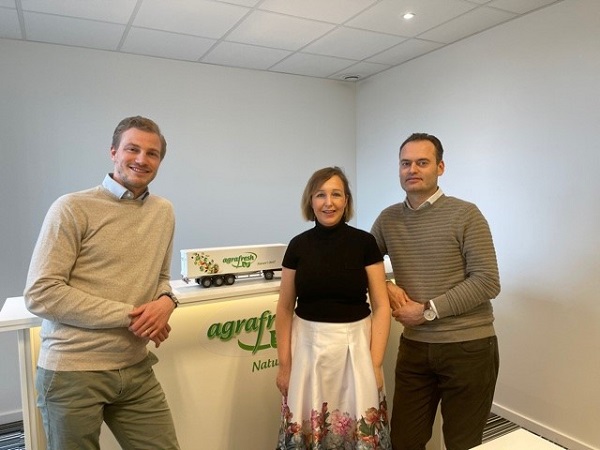
Team Agrafresh
Agrafresh is a vegetable processing business. It’s been supplying ready-to-eat salads, sliced and sous vide cooked vegetables since 2001. That’s to the Belgian, French, and British retail, foodservice, and industry sectors. Ann Vantyghem and her husband Jan Demarez founded the company in 2001. Ann’s brother, Pieter, joined the business a year later. “This family’s passionate about vegetables and adding value,” begins the company’s Vincent Haspeslagh.
“So, tasty, original, easy-to-eat vegetable products dominate Agrafresh. They have since the beginning. Throughout the years, this passion has remained. And we continue to provide people with good value products. We also keep growing through innovation and market development. This strategy is still valid. Opening a production site in Arras, France, reinforced that. We now have two production sites.”
Assortment
Agrafresh’s assortment consists of two main categories – the third and four ranges. Products in the so-called fourth range are freshly cut vegetables and salads. “We can enrich these products by adding ingredients like seeds or a dressing. That allows consumers to continually experience what convenience means,” says Vincent.
The fifth range consists of sous vide pre-cooked vegetables. “These sous vide products include a wide range. It varies from chicory and leeks to all sorts of pulses such as lentils, beans, and chickpeas. These products are mainly used as ingredients in care homes and industrial companies’ commercial kitchens. Their 100% natural pasteurization means neither their flavor nor nutritional value is lost. And the product only has to be heated before it can be eaten.”
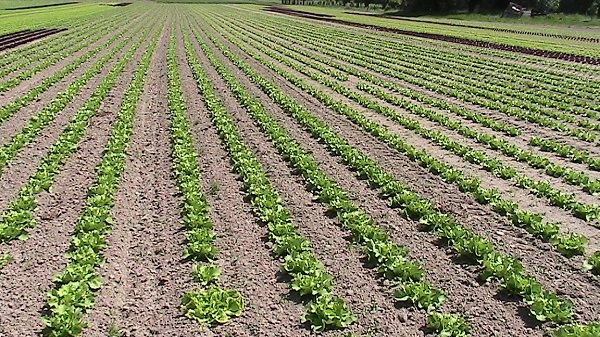
“The classic salads still generally sell very well within our client base. That’s because of not only good quality. An attractive price often remains the deciding factor. Think of classic salad crops, such as iceberg lettuce and rocket. Or on the vegetable side, grated carrots and soup vegetables. New launches that catch on are often updated current crops. They have minor changes like different ingredients or a different cut,” continues Vincent.
“We retain what’s familiar but still encourage more traditional consumers to innovate. However, there’s such a thing as being too innovative. That causes customers to drop out after a few purchases. As soon as the cost of ‘convenience’ becomes too disproportionate, you lose 80% of your clients. Generating recurring sales is, after all, the long-term goal. That’s in each branch of our customer portfolio. And that’s where we support our partners.”
COVID-19
Convenience might have grown considerably in popularity in recent years. But, the global pandemic has proven that home cooking’s still possible. “Last year, people were forced to start using their kitchens again. Still, slicing and dicing puts a lot of people off. It’s time-consuming. A few years ago, ready-made meals were on the rise. They still are. Our fourth range has, however, carved out a slightly stronger position for itself in the market. But it’s still early days,” says Haspeslagh.
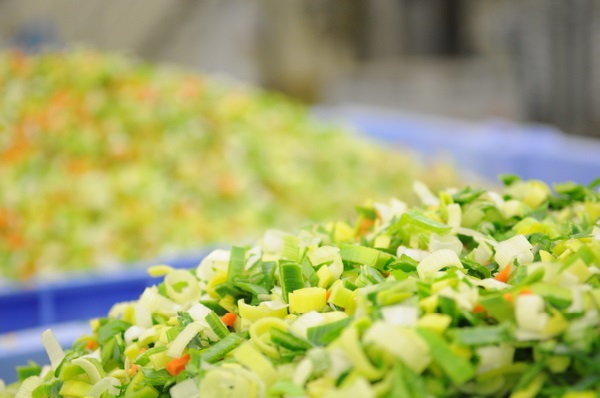
“We know our products still have a lot of potential. The pandemic also caused a long period of inactivity in our foodservice division. Our turnover was lower. However, we could, fortunately, keep going. That was thanks to all our suppliers’ commitment and flexibility. Our Franco-Belgian company retains the typical West-Flemish optimism. Only together can we make it. And we can’t forget that many people have it a lot worse. So who are we to complain?”
Pesticides and origin
“The vegetables we process are all cultivated under contract. They’re still subject to strict quality requirements. That’s vital since client requirements regarding pesticides and origin are also increasing. Without reliable, certified suppliers, you’ll never gain customers’ confidence. We’re responsible for especially clients’ private labels’ images. That’s something you shouldn’t underestimate. We’re fortunate to be located in West Flanders, the vegetable heartland of Belgium,” Vincent explains.
“We, therefore, buy a lot of products locally all year round. However, we also realize it’s impossible to work solely with Belgian vegetables throughout the year. When the Belgian season’s over, our fellow processors and we get most of our vegetables from Spain or Italy. Our customers, but also consumers, must understand that you can’t work with local products all year round. We believe it would be a good thing to return to following certain seasons. Like with strawberries, for example.”
Organic
Two years ago, Agrafresh decided to expand its range. They began permanently offering organic products alongside conventional ones. “The first range used to almost completely meet the market’s organic demand. Demand then began exceeding supply. It was always difficult for us to achieve a stable, year-round supply of organic products. Things changed at our suppliers over the last two years,” says Vincent.
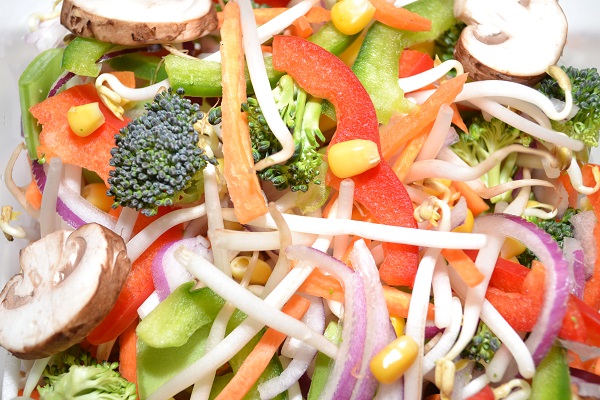
“The supply of organic products has increased. However, in some cases, the speed in the chain will remain a limitation. That’s partly due to unstable demand. It’s also hard for retailers to offer organic convenience products. Convenience in combination with organic is a tough issue. Prices are often just a bit too high. But we think that’s common in the cycle of innovation.”
“It’ll balance out in time. But, realistically, we must admit that organic alone won’t feed the growing world population. We are, however, certainly moving towards a ‘new middle’. We believe in more sustainable agriculture and horticulture worldwide. That’s the direction we must take. Because agriculture can’t continue much longer like this,” Haspeslagh explains.
“We keep a close eye on trends. One of these is the increasing importance of local, organic products. And sustainable, biodegradable packaging. We feel the justifiable pride in Belgian products growing. That’s regardless of how and with which products we’ll use these trends. That’s been the case in France for generations. We work with products with a limited shelf life. So, we’re always limited in terms of geographical sales territory.”
“The local-for-local trend, therefore, fits in perfectly with our type of business. However, as I said, it’ll be challenging. We have to be able to purchase all products locally for a longer period. Vegetables are slightly less sensitive to this. But lettuce needs more heat and sunlight. A deeper cooperation with our customers will further guide us in this. As will respect for the agronomic calendar and innovative cultivation,” concludes Vincent.
Vincent Haspeslagh
Vincent.Haspeslagh@agrafresh.be
Agrafresh
Kasteeldreef 18
8740 Egem – Pittem (België)
T: +32 (0)51 57 50 70
F: +32 (0)51 57 50 79
E: info@agrafresh.be
W: www.agrafresh.be


